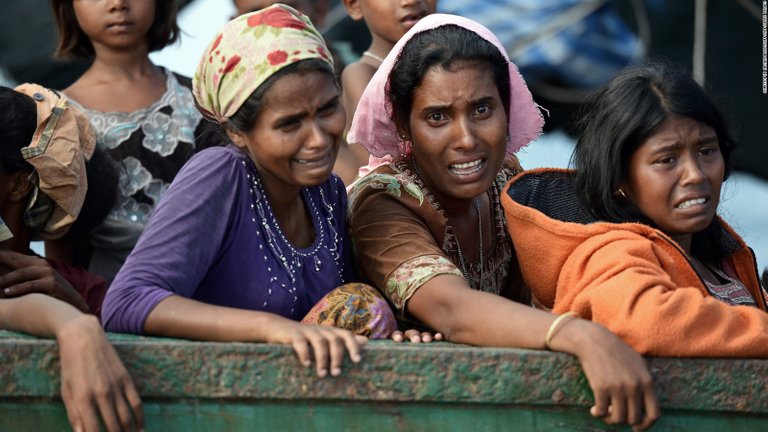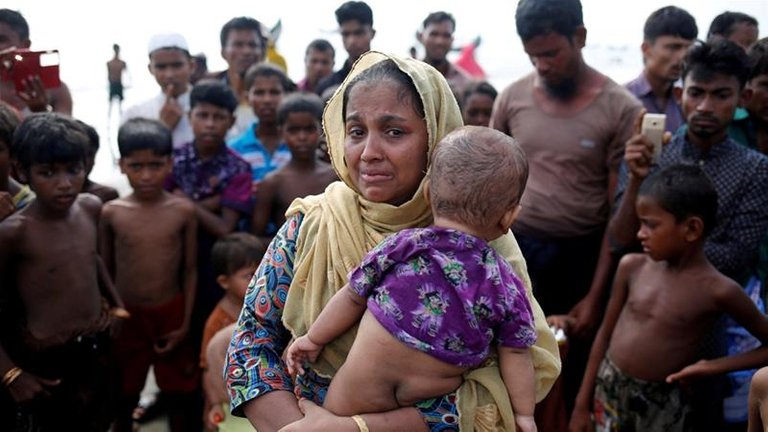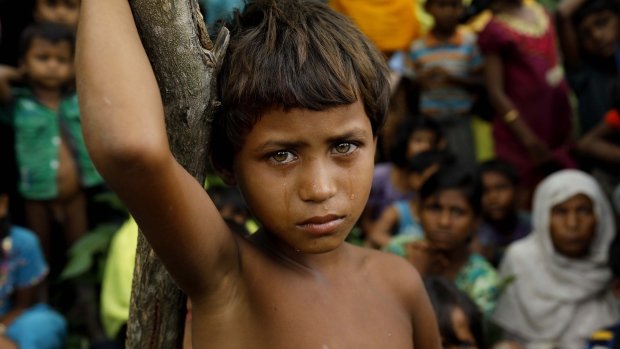Rohingya (/ roʊɪŋjə /, or / roʊhɪŋjə /; historically also known as Arakanese Indian [19] [20]) is a state-indigenous Indo-Aryan population of the Rakhine state of West Myanmar. [21] 2016-17, according to the prevalence of Myanmar Rohingyas 1 million Rohingya lived in Myanmar. [1] [22] Most Rohingya followers of Islam are followers of Hindu religion. ] [27] In 2013, the UN referred to Rohingya as one of the world's most concentrated ethnic minorities. [28] [29] [30] According to the Burmese Citizenship Act of 1982, their citizenship was denied. [31] [32] [33]
According to the Human Rights Watch, the law of 1982 "has given the possibility of Rohingyas achieving nationality effectively. In spite of discovering the history of the Rohingyas until the 8th century, Burmese law has refused to recognize this minority ethnic group as their national anthropogenic population. [33] Also, their movement has been banned in the field of freedom, state education and government jobs. [33] [34] Rohingya Military torture and repression in 1978, 1991-1992 [35], 2012, 2015 and 2016-2017 Have encountered. The United Nations and Human Rights Watch have described oppression and abuse of Myanmar's Rohingyas as ethnic cleansing, [36] [37] where evidence of genocide can be found. [38] Myanmar's special investigator in the United Nations, Ianohi Li, believes that Myanmar is completely from their country [39] According to the 2008 constitution, Myanmar's army wants to disperse Rohingyas The army still controls most issues of the government, including the Interior, Defense and Border Affairs Ministry. There are 25% seats in the parliament for the army and one of them will be a Vice President. [40] [41]
Rohingya says they are living in West Myanmar long ago. Their descendants were residents of Arakan from pre-colonial and colonial periods. Until the end of the twentieth century, the Rohingya represented the lawmaker and parliament member in Myanmar parliament before the start of torture. Although Myanmar had accepted Rohingyas earlier, [42] [43] But suddenly the government attitude of Myanmar changed and official comments from the Myanmar government about the Rohingyas are that they are not the national population, rather they are illegal immigrants from Bangladesh. Myanmar's juvenile has since stopped using the word "Rohingya" and termed them as 'Bangali'. [44] [45] [46] [47] [48] [49] [5] [50] Many Rohingya rights activist organizations, especially Arakan Rohingya The national organization has demanded to identify the nationality among them in Myanmar. [51]
According to the United Nations investigation report, Rohingya are being victimized by hatred and religious intolerance in Myanmar by ultra-nationalist Buddhists. At the same time, the armed forces of Myanmar have been subjected to extrajudicial killings, unlawful arrests, torture, rape and abuse, and forced them to labor forced labor. [52] According to the UN, this torture on Rohingyas can be termed as a crime against humanity. [52] [53] ]
In the Rohingya refugee crisis of 2015, and 1.1 million and 1.3 million Rohingya lived in Myanmar before the military and military operations of 2016. [4] [5] [6] [1] [4] Most of them were actually 80-98% In the Rakhine state, Rohingya .... [50] More than 900,000 lacs Rohingya refugees flee to neighboring Bangladesh as south-east. [54] Apart from this, several Muslims including other neighboring countries [55] [56] [56] [57] [58]. [59] More than 100,000 Rohingyas are internally displaced and are in Myanmar-controlled camps. [60] [61] Rohingya on 25th August, 2017 Myanmar army started "clearance operation" against Rohingya after the rebels killed 12 security personnel. 400-3000 Rohingyas were killed in this operation, many Rohingya were injured, tortured and raped. Their houses were burnt down and more than 400,000 (40% of Myanmar's Rohingya) fled to Rohingya and fled to Bangladesh. [62] [64] [65] [65] [66]


So sad bro :'(